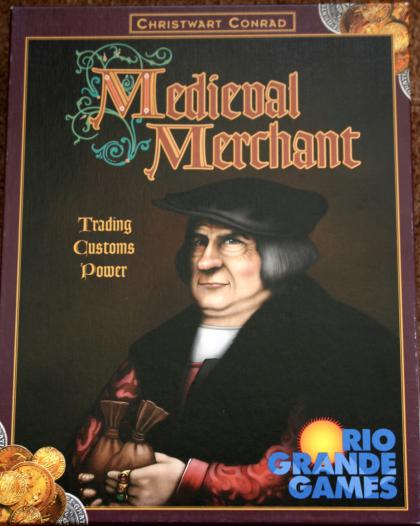Un gioco ormai assai raro, che risente, sia nella grafica che nella componentistica (il denaro in cartamoneta è veramente brutto), di tutti gli anni che si porta dietro. Il meccanismo di valutazione per la raccolta del denaro è comunque originale anche se non proprio immediato, e costringe ad ogni turno a ricontare le caselle vuote, il che non è molto agevole e soprattutto può indurre abbastanza facilmente a commettere degli errori, anche se difficilmente determinanti visto che il denaro stesso, che all’inizio è contato, tende a diventare, dopo non troppi turni, abbondante se non addirittura eccessivo, un po’ come in “Anno 1452” (guarda caso ambientato anch’esso nella Germania medievale). I costi dei collegamenti fra le varie città e villaggi sul tabellone, poi, come in “Powergrid”, appaiono un po’ squilibrati e certamente discutibili.
Players secure valued markets via affordable trade routes between medieval cities while simultaneously forcing opponents into less affordable and less valued markets. The cities themselves have a variable number of spaces for players to develop business branches within, or alternatively establish new trade routes into wider reaching cities and towns. Players may generate income and risk losing dominance over a city, or add branches within a city that lower the value of your product but can award you with a stronger market influence. At the end of the game, the player with the most influence wins.
- Medieval Merchant
- Pfeffersäcke






